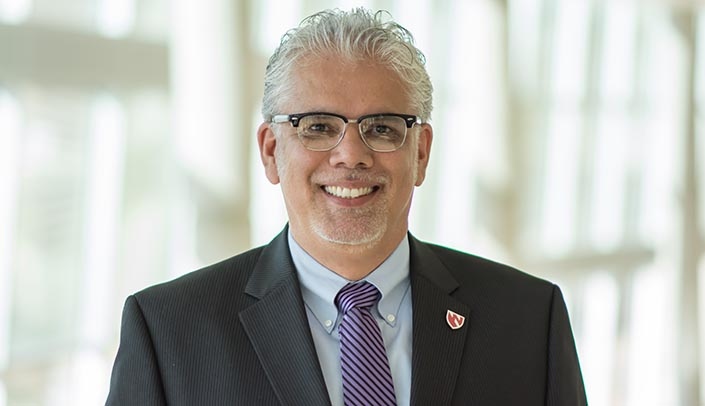The UNMC College of Public Health’s Center for Reducing Health Disparities is teaming with KANEKO for a production called “Listen to My Story,” a performance designed to disseminate the results of a qualitative study on community violence in North Omaha.
But the purpose of the production, spearheaded by researcher Eric Meyer, is to provide context and a sense of the consequences of community violence.
About the performance
What: “Listen to My Story: Perspectives of African-American Mothers and Male Offenders on Violence in Omaha, Nebraska”
When: 6 p.m., Jan. 31
Where: KANEKO, 1111 Jones St., Omaha
Register to attend here.
“The study participants consisted of African-American mothers who were struggling to raise their sons in a community inflicted with violence and male offenders who have lived under a cloud of chronic stress and trauma caused by the cycle of violence,” Meyer said.
Meyer wrote the script for the production from the report he spent approximately one year researching and compiling, and the one-night theatrical performance will include reenactments of his interviews, photos Meyer took during a separate photo-essay project research, and Meyer’s own personal reflections.
Read Meyer’s study — “Listen to My Story: Perspectives of African-American Mothers and Male Offenders on Violence in Omaha, Nebraska” — here.
 |
An image from Meyer’s photo-essay, to be used in the performance. |
“I was interested in what has been effective in the community, and what do people see as gaps,” he said.
“In the U.S., homicide is the leading cause of death for African-Americans, with most victims — 86 percent — being male,” Meyer said. “Despite this, there are few qualitative studies that tell the stories of the people who live in these violent communities.”
The collaboration with KANEKO — which grew from a forum that KANEKO hosted with Meyer in April 2017, “Addressing Violence as a Public Health Issue” — will allow the study’s results to reach a non-academic audience. In framing his results in terms of a theatrical experience, Meyer hopes to reach members of the general public, including community leaders, who would not normally hear these stories.
“The hope is that this presentation format will not only emotionally captivate audience members, but also shed light on the context behind community violence and its dramatic consequences,” he said.
Dejun Su, Ph.D., director of the Center for Reducing Health Disparities, noted that violence is a significant health disparity issue.
“It disproportionately threatens community safety, collective efficacy, and public health in some of our most vulnerable local communities,” Dr. Su said. “We appreciate that we could partner with KANEKO to host this upcoming presentation, so that the public and other stakeholders could also listen to the stories and perspectives on violence shared by residents from these communities. We hope this event would help promote more discussion and partnerships in violence prevention.”

Great job, Eric.
Eric, Listen to My Story will be an awesome event, I am so proud to be on your team.
Research and Art….is a Win-Win. Great Job!
Nice work, Eric!
Interested in learning more and still recognize you after all these years. Wonderful work and great job.
This sound like an awesome project – can't wait to see it!
Interested!
Great job! This sounds really interesting!